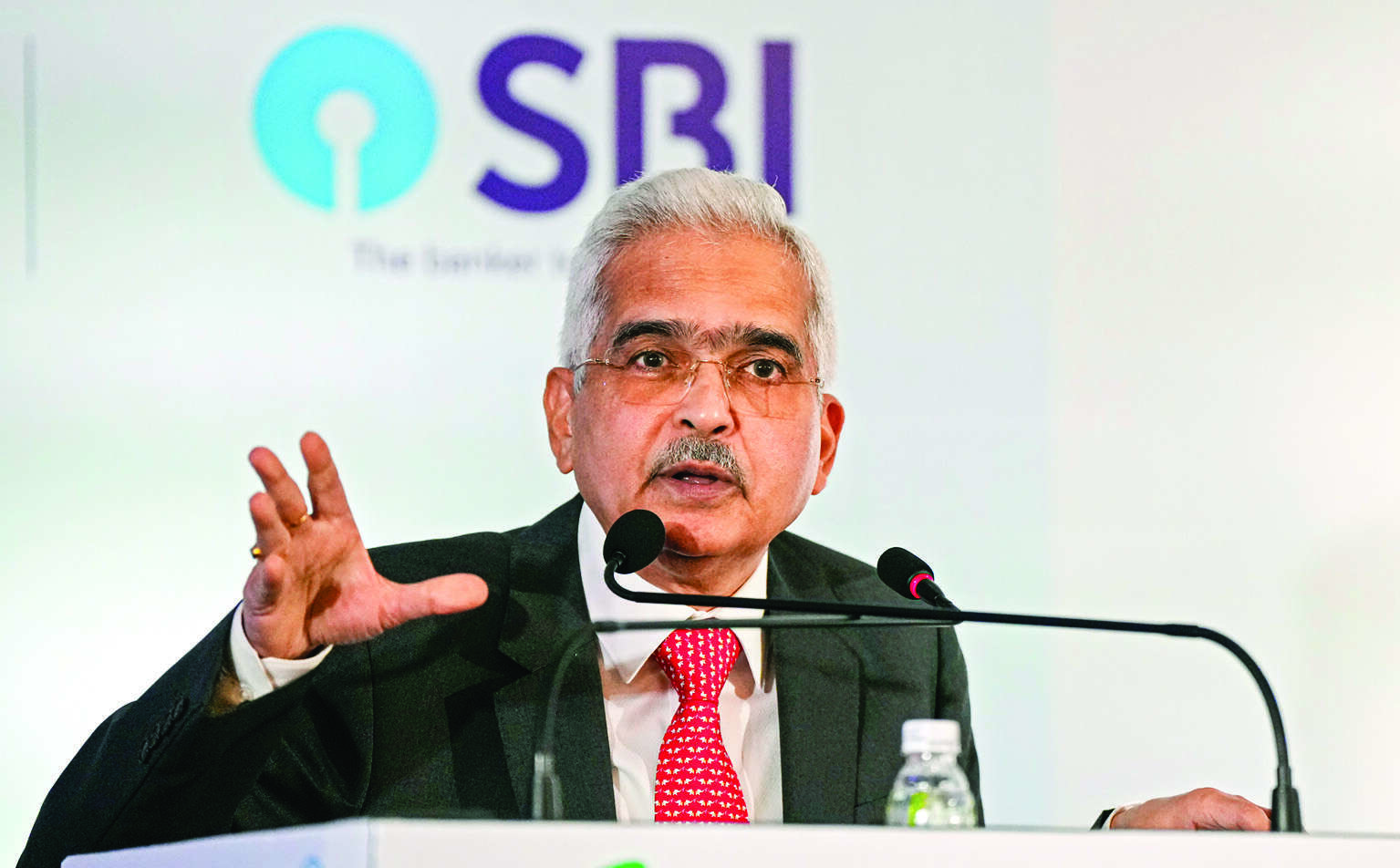Acting early on inflation would have exerted heavy costs: Das

Mumbai: RBI Governor Shaktikanta Das on Wednesday defended the Reserve Bank's handling of the price situation, saying acting prematurely on inflation would have exerted a heavy cost on the economy and citizens.
Acknowledging that the inflation target has been missed, Das said the RBI decided to support the economy by not introducing a rate hike in face of a spike in inflation.
"We prevented a 'complete collapse of the economy' by keeping rates lower and stayed away from premature tightening," Das said speaking at the annual FIBAC conference of bankers here.
Acting early would have exerted costs to the economy and the people, Das said.
The Reserve Bank of India wishes to concentrate on inflation in the same way as Arjuna focussed on hitting the eye of a revolving fish in the epic Mahabharata, Governor Shaktikanta Das said on Wednesday.
"No one can match the prowess of Arjuna, but our (RBI's) constant effort is to keep an Arjuna's eye on inflation," Das said.
Probably hinting at various factors which influence his own fight against inflation, Das said Arjuna would have assessed the speed at which the fish was revolving, the prevailing wind conditions, the intensity of the ripples in the pool of water below and the noise levels in the king's court while aiming at the fish.
He said the rate-setting Monetary Policy Committee (MPC) is meeting on Thursday to formulate a response to the government, but defended the RBI's move to not make the letter, to be written to the government, public.
Not making the letter public does not compromise transparency, Das said, adding that nothing in the law gives him the authority, privilege and luxury of sharing privileged communication between the government and the central bank.
He said, the communication which will focus on what led to the consumer price inflation staying above the 6 per cent mark for three consecutive quarters, includes measures which the panel is mulling to take and by when will the price situation come into the 2-6 per cent band.
Further, RBI governor Shaktikanta Das appealed to all to look at currency depreciation sans emotions, asserting that the rupee has behaved orderly since the current geopolitical crisis.
In remarks that came amid a heated debate on the steady depreciation of the rupee which results in imported inflation, Das said the rupee has depreciated less when compared with other major currencies, and in fact appreciated against other currencies beyond the US dollar.
"Talk of unidirectional downward descent and the RBI's defence are dominating the narrative in the public space. It is, therefore, important to address the issue free of emotions and fully loaded with nothing but facts," Das said speaking at the annual FIBAC conference of bankers here.
"The rupee has seen a very orderly movement since the onset of the current geopolitical crisis. We must deal with the global hurricane with confidence, endurance and the courage of our conviction that we will weather this turmoil," he added.
On a financial year basis, almost all major currencies — barring a few like the Swiss franc, the Singapore dollar, the Russian rouble and the Indonesian rupiah — have depreciated against the US dollar by more than the rupee, he said.
The rupee appreciated against all other major currencies barring of course the US dollar, and a few other currencies, he added.
The rupee has appreciated by 12.4 per cent against the Japanese Yen, 5.9 per cent against the Chinese Yuan, 4.6 per cent against the pound sterling and 2.5 per cent against the Euro, he said.
"The story of currency movements following the war in Ukraine is more about India's resilience and stability in the face of the unrelenting strengthening of the US dollar rather than a story of weakness," Das said. He said rupee's share in global trade is linked to the overall economic growth and especially exports.



